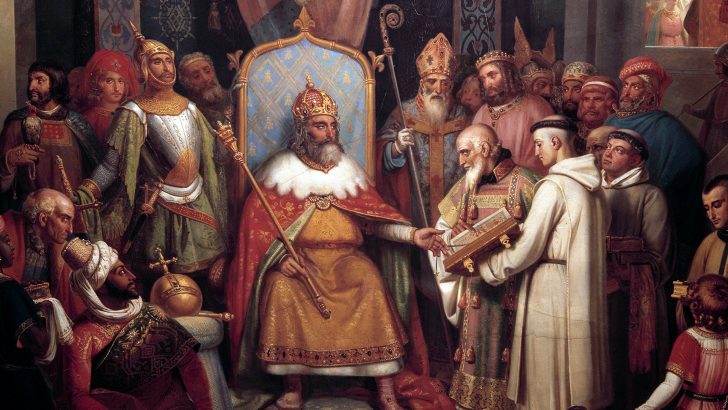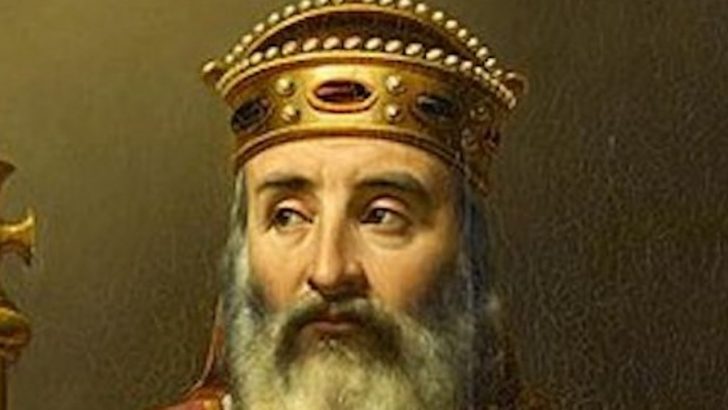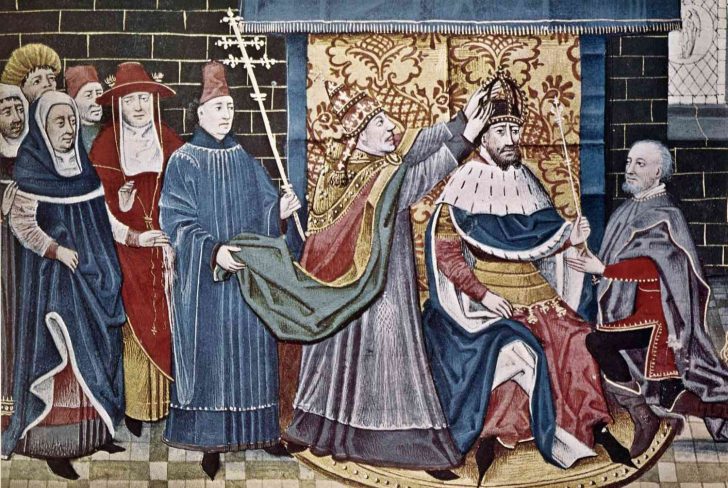Einhard is a name that is synonymous with humility, diligence, and historical accuracy. The Frankish courtier carved his niche in the annals of history through his dedication to documenting the life of one of the greatest kings of the Frankish Empire, Charlemagne. Despite his death on 14 March 840, his contributions continue to echo through time, offering a unique glimpse into the Carolingian era.
Born into a family of modest wealth, Einhard's early life was marked by an education that would set the stage for his future accomplishments. Educated at the abbey of Fulda, his initial steps into the world of academia and spirituality were perhaps indicative of his lifelong pursuit of knowledge and piety.

Fact Talk / Einhard’s modesty, especially in contrast to the grand narrative he crafted for Charlemagne, presents a fascinating study of a man whose stature was small but whose legacy is monumental.
Though it remains unclear whether he ever sought to embrace a monastic life fully, his path would eventually lead him to the imperial court in Aachen in the early 790s. Here, Einhard buzzed around like a "honey-laden bee," a testament to his industrious nature and eagerness to serve at the heart of the Carolingian Renaissance.
Einhard and Charlemagne
The relationship between Einhard and Charlemagne is one of history's most intriguing friendships. Despite their contrasting physical appearances - Charlemagne's towering presence versus Einhard's modest stature - their mutual respect and admiration transcended these superficial differences.
This work, heavily influenced by the style and structure of Suetonius, aimed to immortalize Charlemagne's reign, cementing both their legacies in the process.

GTN / Einhard's dedication to Charlemagne extended beyond the king's death in 814, culminating in the creation of the "Vita Karoli Magni" (The Life of Charlemagne) approximately 15 years later.
The Vita Karoli Magni
Einhard's "Vita Karoli Magni" stands as a monumental work in medieval historiography. Claiming "the witness of my own eyes" as his primary source, he endeavored to present a comprehensive and authentic account of Charlemagne's life and achievements.
Despite criticisms regarding its derivative nature, the Vita's success in portraying Charlemagne as a figure of Roman greatness cannot be understated. The survival of 123 manuscript copies of the Vita speaks volumes about his skill as a historian and the lasting impact of his work.
Einhard the Sinner
Throughout his life and career, Einhard maintained a profound sense of humility, often signing his name as "Einhardus peccator" (The Sinner). This self-perception reflects not only his personal piety but also a deep awareness of his own mortality and fallibility.

Diggin Deep / Einhard was so modest and down-to-earth that he named himself "Einhardus peccator.” Meaning, Einhard the sinner.
In contrast to the grand narrative he wove for Charlemagne, Einhard's modesty serves as a reminder of the human element that pervades historical documentation, offering a more relatable and nuanced perspective on the past.
Summing Up
The death of this historian on 14 March 840 marked the end of an era and the beginning of a legacy that would endure for centuries. Through his meticulous documentation of Charlemagne's reign, Einhard not only contributed to our understanding of the Carolingian Empire. But he also exemplified the virtues of humility, diligence, and historical integrity.
As we reflect on his life and works, we are reminded of the profound impact that one individual's dedication to history can have on shaping our collective memory. His story is a blend of modesty and greatness. It has continued to inspire many for centuries now.




